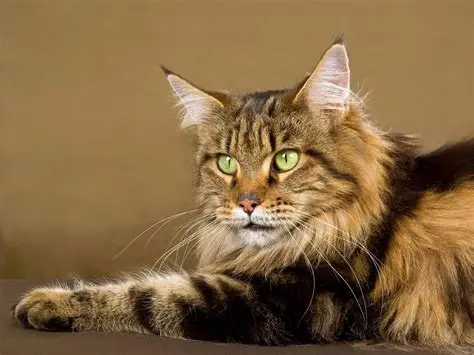
Breed Characteristics
About Maine Coon
The Maine Coon is one of the largest and most iconic domestic cat breeds, often referred to as the “gentle giant” of the cat world. They are known for their impressive size, long, flowing fur, and majestic bushy tail. Their coat is dense, water-resistant, and comes in nearly every color and pattern imaginable, making them highly versatile in appearance. Maine Coons have a rectangular, muscular body with broad chests and sturdy legs, giving them a strong yet graceful presence. Their large, tufted ears and expressive almond-shaped eyes add to their striking look. They are slow to mature, often reaching full size around 3–5 years of age. Temperament-wise, Maine Coons are extremely friendly, gentle, and sociable. They tend to get along well with children, other pets, and even strangers, making them excellent family companions. They are intelligent, playful, and sometimes exhibit dog-like behaviors, such as following their owners around or fetching toys. Although their long fur requires regular grooming to prevent mats and tangles, Maine Coons are generally healthy cats with a robust constitution. They are highly adaptable, affectionate without being overly demanding, and bring both charm and companionship to any household.
Maine Coon
Available Colors
Recommended Diet
What to Avoid
When caring for a Maine Coon, it’s important to avoid feeding low-quality foods that lack sufficient protein or contain too many fillers, as they need a nutrient-rich diet to support their large, muscular bodies. Overfeeding or giving too many treats should also be avoided, since obesity can lead to joint problems and other health issues. Regular grooming is essential, and skipping brushing can cause mats and skin irritation due to their long, dense fur. Maine Coons are active and playful, so keeping them in small, unstimulating spaces is not ideal. Additionally, toxic foods such as chocolate, onions, garlic, grapes, raisins, and raw meat or fish should never be given, and hazardous plants or chemicals should be kept out of reach. Regular veterinary check-ups are also important, as Maine Coons can be prone to genetic conditions like hypertrophic cardiomyopathy (HCM), and early detection is key to maintaining their health.